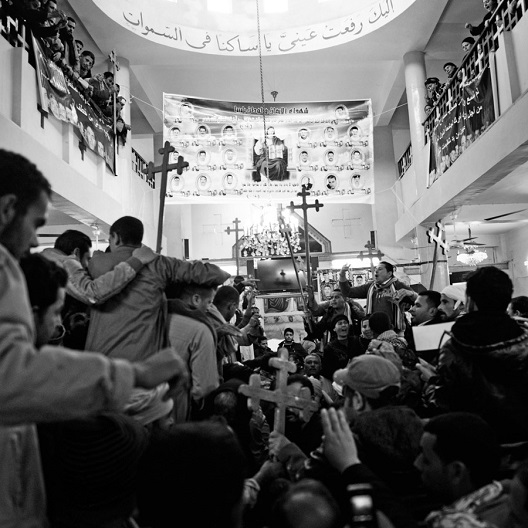 Between agony and happiness, the village of al-Aour in the Egyptian governorate of Minya lost thirteen of its residents to a brutal death. Those thirteen were among the twenty Egyptian Christians recently beheaded by the Islamic State (ISIS) in Libya.
Between agony and happiness, the village of al-Aour in the Egyptian governorate of Minya lost thirteen of its residents to a brutal death. Those thirteen were among the twenty Egyptian Christians recently beheaded by the Islamic State (ISIS) in Libya.
As the video was paraded online by ISIS supporters, it reached al-Aour on the same day. Screams of women and children were heard throughout the village. Amid the sadness for their loss, the majority of the village inhabitants, surprisingly, expressed happiness regarding the killing of their relatives.
The news at first shocked their relatives, but later evoked a different image to them: The image of martyrdom. The image of heroes. “I am happy for my relatives. They had faith in God. They had faith in Jesus Christ. And that is what matters. They died for their faith. They died for Christianity,” said Bishop Feloubes Fawzy, 43, who lost his nephew and four of his cousins.
On January 3, around 2am in the coastal Libyan city of Sirte, masked gunmen knocked down the door of a dormitory of Egyptian workers. “We came for the Christians. Stay away,” heard Milad Ibrahim, 27, who witnessed the abduction of his two cousins behind closed doors in a dormitory next door.
The twenty victims were laborers who had travelled 1,200 miles to Libya to find work to feed their families. According to Shenouda Shokry—an Egyptian farmer who travelled to Libya twice for work, and a brother of Youssef Shokry, one of the twenty killed by ISIS—Egyptian workers initially have to pay an average of EGP 8,000 (around $1,050) to get the Libyan visa through an agency. Most make the long journey by land.
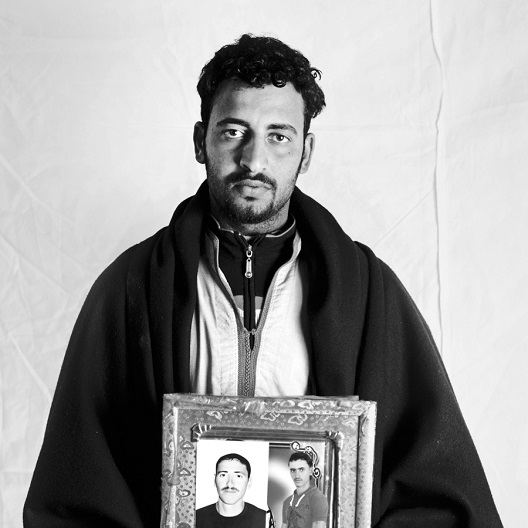
Milad, the cousin of slain laborers Gerges Samir, 20 and Malak Ibrahim, 25, who worked with them in Libya and witnessed their abduction by ISIS: “On the 28th of December 2014, we got a phone call from our friends informing us that they have been kidnapped – it was only 10 seconds. Later Gerges, Malak and I decided to go back to Egypt. A few days later Gerges and Malak were abducted by ISIS along with other 11 Egyptian Christians. That night, I heard gunmen stepping into their dormitory but I couldn’t do anything. I was unarmed. Gerges travelled all the way to Libya to be able to pay for his brother’s university. That is why his death was painful to his brothers more than any other person,” said Milad.
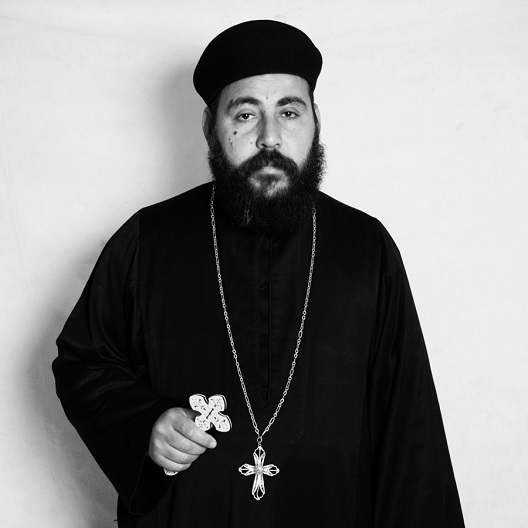
Bishop Botrous, uncle of slain laborer Mina Fayez, 23: “Our Orthodox church is a great church. Our church was built by the blood of martyrs. Throughout history, it has always brought heroes and martyrs to the world. I was shocked when I heard the news. But I was definitely happy for my nephew. He’s a martyr,” said Shehata.
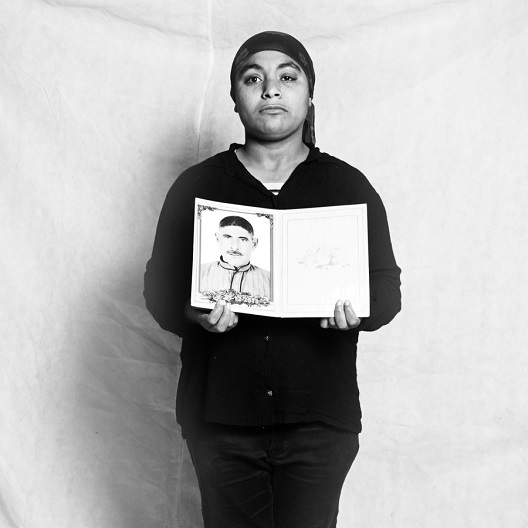
Fifi, daughter of slain laborer Maged Shehata, 41: “My father died like a lion. He did not bow his head down. ISIS has no religion or mercy. I am now from the city of the martyrs. The city of the brave lions. May god forgive the killers. We don’t have hatred towards them – this is Christianity. God forgives the sinners, so shall we,” said Fifi.
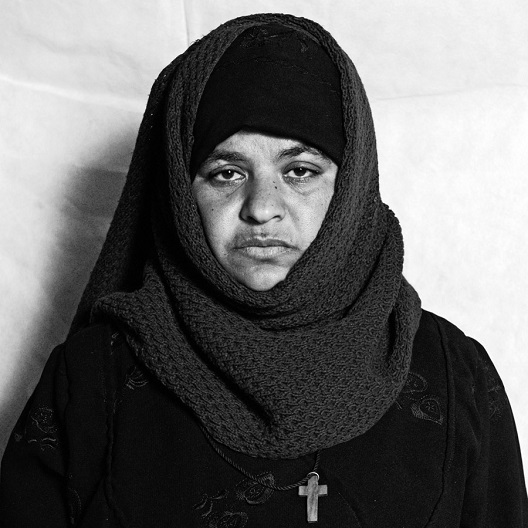
Wife of slain laborer Maged Shehata, 41. She was not able to speak.
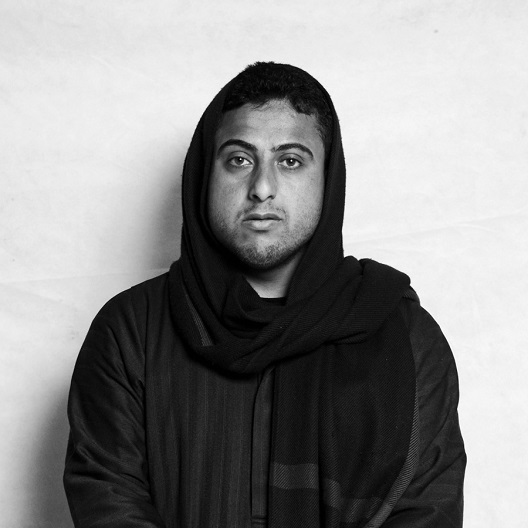
Ibrahim, brother of slain laborer Abanoub Ayiad, 24: “Abanoub needed money. He was not able to work Egypt. So, he traveled to Libya to find a job opportunity. We lived forty days of fear, hoping he would come back. He did not. He was slaughtered by ISIS. We want Sisi to destroy all the terrorists Egypt and Libya,” said Ibrahim.
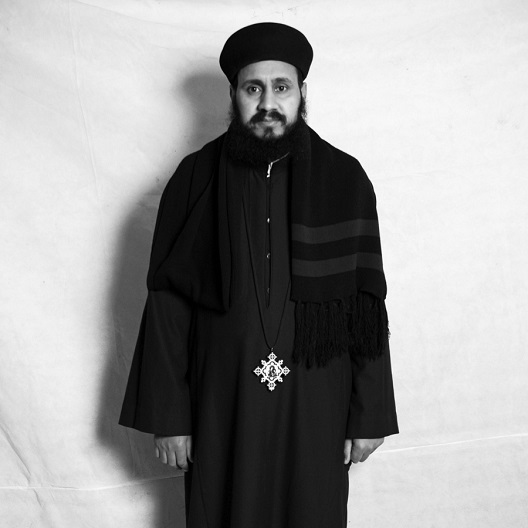
Bishop Makar Essa Sawiris, 40: “The most thing that gave strength to the relatives here was the scenes they saw that impressed the whole world of the victims being brave. It was a sign of martyrdom. These martyrs were chosen by God to go to heaven and inspire the whole world. They raised our heads up high.”
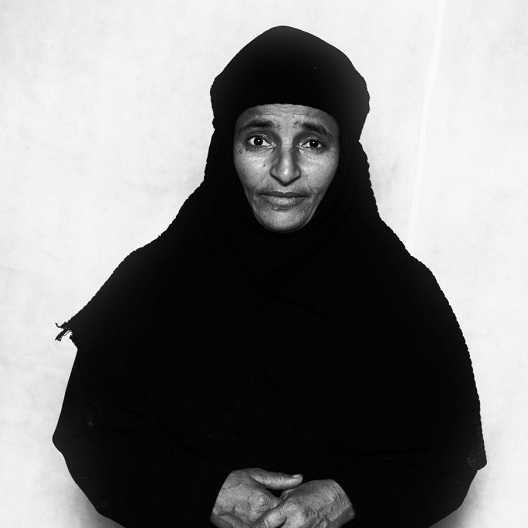
Mona, mother of slain laborer Kirollos Boushra, 23: “Kirollos always wanted to be a bishop. He is even better now. He is a martyr. He travelled to Morocco and Libya after he finished his military service in Egypt. He wanted his family to have a better life,” said Mona.
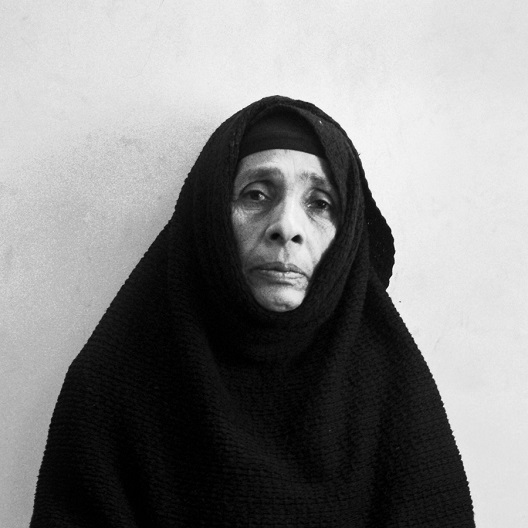
Zeez, mother of slain laborers Samuel Istafanous, 21 and Beshoy Istafanous, 23: “Samuel and Beshoy called me one day before they were abducted and asked me to cook their favorite food. They were planning to get back to Egypt. Each one of them went to Libya once they finished their military service in Egypt,” said Zeez.
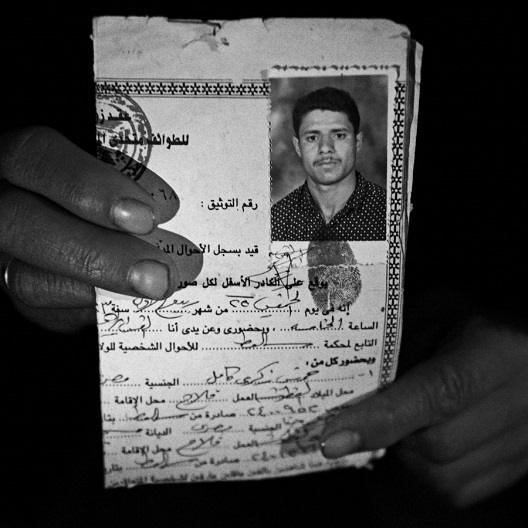
Magda, wife of slain laborer Hany Abdel-Messih, 32: “My husband is in heaven. He’s now with Jesus Christ. Before he went to Libya, he used to go to church on a daily basis. We lost him. We lost his love. We did not deserve him. He was an angel,” said Magda.
Jonathan Rashad is a self-taught documentary photographer who grew up in Cairo and started his career in 2008. He has covered events in Egypt as they have unfolded over the past few years. Follow him on Twitter @JonathanRashad
